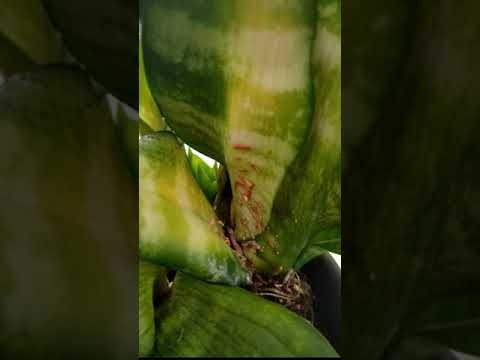
The snake plant spiritual meaning for some people is very important to consider when buying the plant.
Just like dealing with a wilting snake plant, things like the spiritual meaning of a snake plant can be something that needs to be clearly understood. Therefore, this article will discuss snake plant spiritual meaning, so keep reading!
If you’re wondering about the snake plant spiritual meaning, then let’s talk first about Sansevieria trifasciata, or mother-in-law’s tongue, which is a succulent plant that can tolerate many conditions well.
This plant is usually grown indoors for purifying the air, but it also produces oxygen at night, which is why it’s sometimes called a bedroom plant.
Its health advantages are also excellent, and it is seen as a sign of happiness.. Here’s the answer to our question.
Frequently Asked Questions: Snake Plant Spiritual Meaning
Snake plant spiritual meaning is associated with good luck and brings positivity into the surrounding area.
In addition to purifying air, they also provide oxygen at night, enhancing your sleep.
Feng Shui suggests placing them in the southern or eastern corners to shield against bad energy.
Read more about these special sharp-leaved houseplants, the snake plant spiritual meaning below:
What Does The Snake Plant Symbolize?
The green color in snake plants symbolizes nature and how nature can give us good health, as well as freshness, environment, and good luck. In addition, it indicates progress and balance in the natural world. Additionally, snake plants absorb air toxins and clean them, as well as producing oxygen at night, making it one of a kind among plants that have a close relationship with the environment.
What Does The Snake Plants Represent?
Snake plants represent nature, the environment, and positive energy. In addition, it symbolizes cleanliness because it counteracts the toxic air indoors. Feng shui says that these plants make great gifts, as they have special meanings. It can reduce your daily stress by bringing good, fresh grapes. You can keep it inside the office and it will keep the environment clean.
Are Snake Plants Unlucky?
Some people say snake plants could bringing bad luck according to Feng Shui.
Really makes you think about buying one, does it? Well…
To be clear, it is not bring you bad luck! It’s actually beneficial.
It cleans your house and eliminates poisonous gases from the air, which makes it a lucky plant.
Getting rid of bad air from your home is a wise move for your family’s health and the environment, according to one study.
Place them where there will be no negative chi (which is considered bad energy in chinese Feng Shui).
The best place to place them is in your bedroom or hall, as they will effectively filter out bad air.
As far as Feng Shui is concerned, snake plants are for good luck and referred to as lucky plants as they bring positive energy.
When your plants are happy, they radiate positive energy, so make sure they get enough light and water so they won’t develop problems like yellowing leaves or curling leaves.
What Does Feng Shui Say About Snake Plants?
In Feng Shui, eight virtues of god are generally placed near the entrance so that when it enters the house, it fulfills and activates its goodness and provides art, poetry, beauty, strength, health, longevity, and intelligence.
There are many people who grow these plants indoors because they are such a valuable plant that is naturally uplifting.
So yes, Feng Shui says snake plants are great addition to your home!
Where Is The Best Place To Place Them in My House?
The best location for a snake plant in your house is in the hallway or bedroom where it gets a small amount of sunlight for 2-5 hours.
It is tolerant of this amount of sunlight and it does not harm snake leaves.
You can even grow them in a corner if you get indirect sunlight from windows.
The ideal temperature is more than 51 degrees Fahrenheit, and most rooms have this temperature.
Conclusion
Snake plants have tons of benefits and well-intended symbolization to them.
We hope this article on snake plant spiritual meaning helps you understand our sharp-leaved Mother-In-Law’s Tongue plant better.
Check below for more articles that you might find useful!




